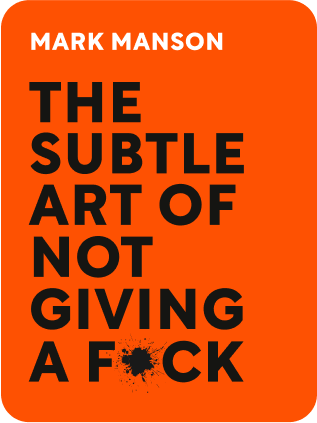

This article is an excerpt from the Shortform book guide to "The Subtle Art of Not Giving a F*ck" by Mark Manson. Shortform has the world's best summaries and analyses of books you should be reading.
Like this article? Sign up for a free trial here .
Why will changing how you see yourself improve your life? Why is “finding yourself” actually restrictive rather than freeing?
When you challenge your identity, you allow yourself to grow as a person. We need to stop putting limiting labels on ourselves and allow ourselves to continue to grow and change.
Continue reading to learn how you can change how you see yourself.
Changing How You See Yourself
You can’t change or improve your life until you’re able to change how you see yourself.
But people typically avoid changes that challenge their identity. They fear even changes that could improve their lives, because change pushes them out of their comfort zone. It doesn’t matter whether the change is good or bad.
- For example, either striking it rich or losing your money could change how you see yourself; a new job could challenge your identity as much as losing your job could.
Success and failure both challenge your identity, which is why people fear them both. We may reject beneficial opportunities if they require us to change the values by which we define ourselves. For example, maybe you can’t bring yourself to tell someone you don’t want to see them anymore, because that contradicts your belief in patience and forgiveness.
Stop Trying to Find Yourself
We put a lot of effort into “finding” or “knowing” ourselves. But this can be limiting if the identity you choose is a narrow one. It can restrict your emotional development and opportunities.
- For instance, you may hang on to your college “party guy” persona even though this prevents personal growth and ultimately a happier life.
- It’s better to keep learning and discovering than to “find” yourself; you’ll be open to improvement and also less judgmental.
Buddhism teaches that you should give up your idea of who you are because your image of yourself is an artificial creation. The way you think about yourself constrains you, and you should give up these limits.
Giving up your concept of who you are frees you to try things, fail, and grow. For example, when a woman gives up her image of being a perfect spouse and admits she’s not good at relationships, she’s free to end or improve her bad marriage.
The solution:
- Accept that you’re not unique or special. Choose a common, non-limiting identity such as friend, student, partner, parent, instead a narrower one like victim or rising star. When you choose a rigid identity, you constantly feel threatened.
- Give up inflated ideas of yourself that give you a high, such as that you’re uniquely talented, smart, or attractive, and are therefore entitled. This will make you more resistant to failure and allow you to pursue growth, since the risk of reaching and failing won’t scare you.
How to Cultivate Doubt
Questioning and doubting yourself is a difficult skill to learn, but healthy doubt can be developed by asking yourself three questions that encourage humility as opposed to certainty:
1. What if I’m wrong?
Acknowledging you’re wrong or that you don’t know everything allows you to change. Put another way, in order to grow you have to be wrong sometimes.
Because we’re usually not very aware of how we’re feeling and behaving, we need to regularly ask ourselves whether we could be wrong. For example, in an argument with a partner, you might ask, “Is she right? Am I jealous?”
Questioning whether you’re wrong about something doesn’t mean you actually are wrong — sometimes you’re right, or you have an accurate view of your situation.
However, unhappiness is a sign that you’re wrong about something — but you won’t learn what it is and change it until you ask questions.
2. If I am wrong, what does that mean?
This is a more difficult question, because it goes one layer deeper. Determining what being wrong would mean requires examining our values and considering potentially contradictory values.
For example, if you’re arguing with your partner, and you realize she’s actually right and you’re wrong, then that could mean “I do get unnecessarily jealous” or “I tend to jump to conclusions way too easily.”
Usually this thinking leads you to discover a weakness, which can be painful to hear. It might require you to adopt better values, such as open-mindedness or tolerance.
3. Would being wrong improve or worsen this situation?
This question requires comparing alternatives, including the impact on others. It reveals whether the values underlying your problem are valid or poor ones.
Example
A brother opposes his sister’s decision to marry, because he has a vague hunch that the guy will be bad for her. In questioning whether being wrong creates a better or worse problem, his options might be: A) speak up, and complicate a happy occasion by insisting on a vague hunch; B) question his ability to decide what’s best for his sister, and trust her to make her own decisions.
Option A is simpler and requires little thought, but it also makes everyone miserable.
Option B requires the brother to question whether he’s wrong about the person. And if he is wrong, that would mean he’s not as great an evaluator of people as he thought, and he might just be acting selfishly. Further, if he were wrong, then speaking up would certainly worsen the situation.
He realizes his values are screwed up if being right and imposing his decision on someone else is more important than that person’s happiness and autonomy.
Key points:
- Often, if being wrong will improve the situation, then it’s better to consider that you’re wrong.
- If you feel as though everyone else is wrong and you’re right, you’re probably wrong. If you feel as though you’re battling the world, you’re probably fighting yourself.

———End of Preview———
Like what you just read? Read the rest of the world's best book summary and analysis of Mark Manson's "The Subtle Art of Not Giving a F*ck" at Shortform .
Here's what you'll find in our full The Subtle Art of Not Giving a F*ck summary :
- How to clarify what's important to you (and not just what you think should be important)
- Why it's okay for things to not always go well in life
- Why you need to care about fewer things






